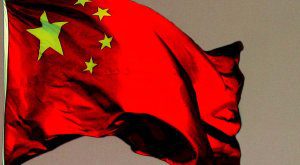 China has become dangerously comfortable with the practice of detaining foreign nationals on fabricated charges, often referred to as hostage diplomacy. But there is nothing diplomatic about it, writes Margaret McCuaig-Johnston in the Toronto Star.
China has become dangerously comfortable with the practice of detaining foreign nationals on fabricated charges, often referred to as hostage diplomacy. But there is nothing diplomatic about it, writes Margaret McCuaig-Johnston in the Toronto Star.
By Margaret McCuaig-Johnston, March 16, 2021
China has become dangerously comfortable with the practice of detaining foreign nationals on fabricated charges. This tactic is often referred to as “hostage diplomacy,” but we should not call it that. There is nothing diplomatic about it.
In reality it is kidnapping, especially to the person who is taken off the streets by unknown men, a black bag pulled over their head, and held in an undisclosed location with no chance to call a lawyer or family for many months.
These detentions are being brandished as a weapon against the hostages’ home countries. Canada has seen this tactic used against us, most recently with China’s arbitrary detention of Michael Kovrig and Michael Spavor.
Both men have been imprisoned and subjected to torture since December 2018 in apparent retaliation for Canada’s extradition arrest of Huawei executive Meng Wanzhou. In 2014, Canadians Kevin and Julia Garratt, underwent the same ordeal when they were detained in China as leverage in another U.S. extradition case.
It is chilling to see how prepared a country is to kidnap people like this. I was in Shanghai when the Michaels were taken. I mentioned to a Chinese national that they had been detained and he replied that Beijing has a list of 100 Canadians they can pick up and interrogate at any time. When I returned to Canada, several others told me about the list. No doubt, Beijing keeps lists of citizens of other countries too. Australia’s recently detained television host Cheng Lei was likely on their list.
Fortunately, there is now a strong consensus among nations that this taking of hostages is unacceptable. After many months of pressing for the release of our Canadians, former minister of foreign affairs, François-Philippe Champagne, identified the need for a bigger coalition of countries to call out this undiplomatic behaviour. Last month we saw the results of his efforts, developed through Canada’s missions abroad.
A remarkable 58 countries, plus the European Union as an organization, have signed the Declaration Against Arbitrary Detention in State-to-State Relations. To reach the broadest consensus possible, the declaration does not target any one country, and signatories are regionally diverse.
Many countries have found themselves in Canada’s situation, and others fear they could be targeted in the future. During the three-hour launch event, all foreign ministers spoke, and those of several Eastern European countries eloquently described similar tactics used by Russia. Other perpetrating countries were mentioned as well.
American Secretary of State Antony Blinken gave a very strong condemnation of such arbitrary detention. More nations are expected to sign on, and not signing will further isolate those hostage-taking nations.
Dual citizens are particularly highlighted in the declaration, as they are often caught between two nations that have policy disagreements. In China’s case, the authorities are now pressing those detained Canadians born in China to give up their Canadian citizenship so they will not receive consular services. This, too, is something that the signatories have pledged to address.
While this new initiative may not bring the immediate release of the Michaels, it is an important first step toward establishing an international norm of expectation regarding the behaviour of responsible countries. It also provides a new forum for countries to work together to take action on specific cases.
And there is one more thing that Canada could do for innocent citizens subjected to such hostage taking. We have seen that China uses forced confessions on television to threaten the hostage and punish his country. Those forced confessions have been aired in Canada on China’s state-run CCTV and CGTN networks.
The U.K. and Australia have already cancelled the networks’ licences in those countries, and significant fines have been levied for some of the same forced confessions that aired in Canada. The CRTC should take action now on the networks’ content infringements in this country. It would be another important way to curb hostage abuses in China.
Margaret McCuaig-Johnston is a senior fellow at the Institute for Science, Society and Policy and the University of Ottawa.




